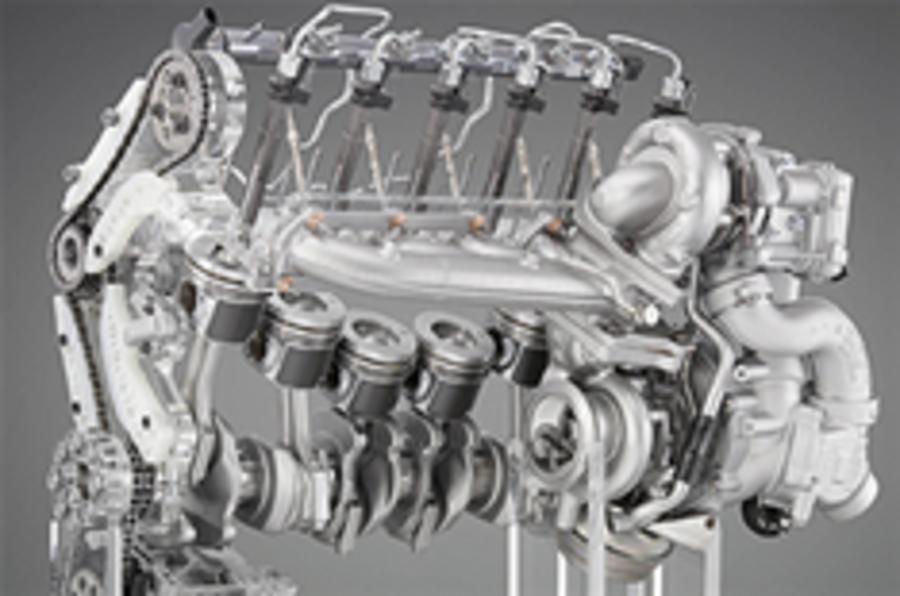BMW has unveiled two new turbocharged straight-six engines that it expects to gradually replace V8 engines for most of its customers. It has also launched a new eight-speed automatic transmission, which also promises improved economy.
The 3.0-litre petrol petrol unit is dubbed the TwinPower turbo and is the first BMW unit to combine the familiar Valvetronic variable valve management (although the system has been newly downsized) with high-pressure fuel injection and turbocharging.
Read 'Full details: next BMW 1-series' here
See all the latest BMW reviews, news and video
Using a single, twin-scroll, turbocharger, the new engine develops 302bhp and 295lb ft of torque, which it can deliver from just 1200rpm and then all the way to 5000rpm. BMW says this kind of torque delivery emulates the feel of a much larger V8 engine.
Despite this, the new petrol engine is good for just 209g/km of Co2 and 26.4mpg. BMW says when this unit is fitted to the new 5-series GT (badged as the 535i) it will hit 62mph in just 6.3 seconds.
The new flagship 3.0-litre turbodiesel (today’s engine is currently fitted to around 150,000 BMWs each year) has also been updated to provide 302bhp (up seven per cent over the current engine) and 442lb ft (up three per cent). It also delivers 100.5bhp per litre.
It does this while returning an average 34mpg - a four per cent improvement over the current engine.
Extensive changes have been made by BMW including a new 2000 bar piezo injection system, new inlet manifold and a new ‘variable twin turbo’ set-up. There are two turbochargers, one ‘low pressure’ and one ‘high pressure’, the latter having a variable nozzle turbine activated by an electronic actuator. The speed at which the engine can deliver its torque on driver demand has been improved by an average of 40 per cent.
The engine meets EU5 emissions regulations and is fitted with a maintenance-free particulate filter.
The new eight-speed autobox – which debuted in the BMW 760i – will now be offered on smaller BMW models, replacing the old six-speed unit. Aside from offering a wider spread of ratios, the torque converter is only allowed to slip wastefully at low revs, before locking up above 1200rpm. BMW claims that the 'box can equal the fuel economy efficiency of dual-clutch manual 'boxes.






Add your comment